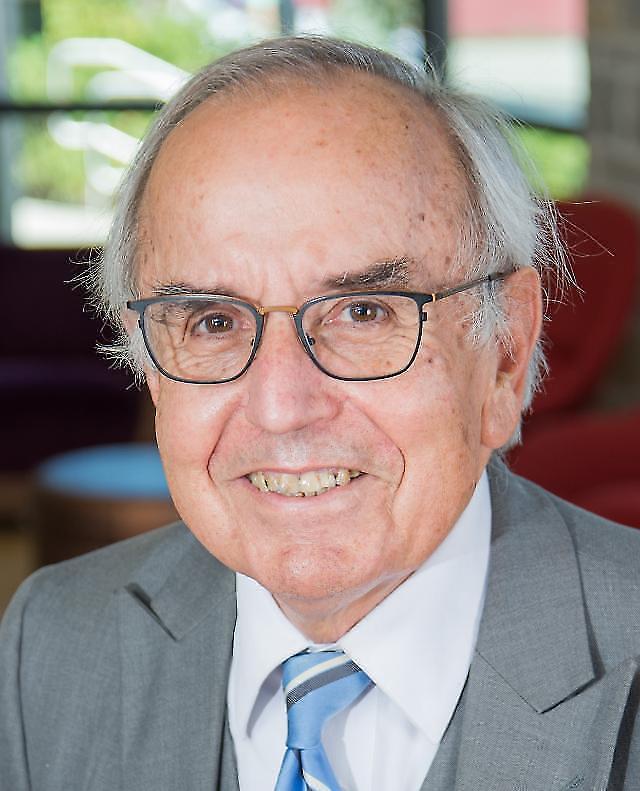
[Arthur I. Cyr]
KENOSHA -- Government leaders of the influential Group of Seven (G7) met in Japan during May 19-21. Last June, they gathered at the elegant Schloss Elmau, in picturesque Bavaria Germany. Two major nations known in the past for aggressive militarism are now influential leaders in international cooperation.
The 2023 G7 meeting was held in Hiroshima, along with Nagasaki devastated by the atomic bombs which ended World War II in the Pacific. These cities testify to the absolute horror of modern war, and also the human capacities for positive regeneration.
President Volodymyr Zelensky of Ukraine was a featured G7 guest. He and Japan’s Prime Minister Fumio Kishida jointly laid a wreath for the atomic bomb victims at the Cenotaph in Hiroshima.
The public purpose of the Group of 7 is fostering economic stability. The other related purpose, however, is to diminish the likelihood of war.
Vladimir Putin, in using Russia’s military to invade Ukraine, has provided a bloody lesson in reality. For the first time since the cataclysm of World War II, a major military power has launched a war on the continent of Europe.
For a time, Russia’s membership turned the G7 into the G8. Putin’s 2014 annexation of Crimea resulted in a suspension from the organization.
Last June 23-24, China President Xi Jinping hosted a virtual summit of his counterparts in Brazil, India, Russia and South Africa. These sizable nations are not equal to the G7, nor are they united.
During May 18-19 this year, Xi hosted a Central Asia “summit” involving Kazakhstan, Kyrgyzstan, Tajikistan, Turkmenistan and Uzbekistan along with China. The meeting was held in Xi’an, Shaanxi province, not exactly a global crossroads.
Russia’s brutal, so far disastrous, invasion of Ukraine has ended once-close cooperation with China. This recent meeting is an effort to increase influence in what was once Russia’s sphere.
The G7 operates in the context of the larger G20, begun in 1999. That incentive was the Asia financial crisis of 1997, sparked by the collapse of Thailand’s currency. Xi holding his mini-summits outside this context is revealing.
This G7 summit is the second for Chancellor Olaf Scholz of Germany, successor to long-serving Angela Merkel, a challenging act to follow. Additionally, Germany hosted a summit in 2015, also in the Schloss Elmau.
The organization evolved from an informal meeting of finance ministers of Britain, France, West Germany, and the United States. U.S. Treasury Secretary George Shultz began the initiative, spurred by the 1973 oil embargo launched by the Organization of Petroleum Exporting Countries (OPEC). Other members are Canada, Italy and Japan, with the European Union (EU) also engaged.
Emphasis on non-military problems after the frightening Cold War years is understandable. Hopefulness, however, has not avoided realities.
Britain sponsored the G7 summit in 2021. That meeting assembled in the immediate wake of Belarus forcing a traversing civilian international airliner to land. Roman Protasevich, a passenger and prominent critic of Belarus President Alexander Lukashenko, was then arrested.
The world has progressed since the invasion of Poland by Germany and the Soviet Union in 1939. Persecution of journalists and others is disturbing, indeed tragic.
However, market economies and representative governments are spreading. Throughout the Cold War, the United States and our allies were generally on the defensive. Today, dictators no longer conquer entire nations, and their foundations are fragile.
The dictatorships are on the defensive. Global momentum is with us.


![[OPINION] Election loss weakens Turkeys President Erdoğan](https://image.ajunews.com/content/image/2024/04/11/20240411153203838176.jpg)
![[OPINION] US political turmoil reflects our wider society – in 2024 and earlier elections](https://image.ajunews.com/content/image/2024/03/28/20240328080320147882.png)
![[OPINION] George Marshall: A Public Servant and the Public Good](https://image.ajunews.com/content/image/2024/03/20/20240320155340665763.jpg)